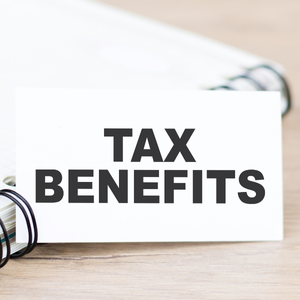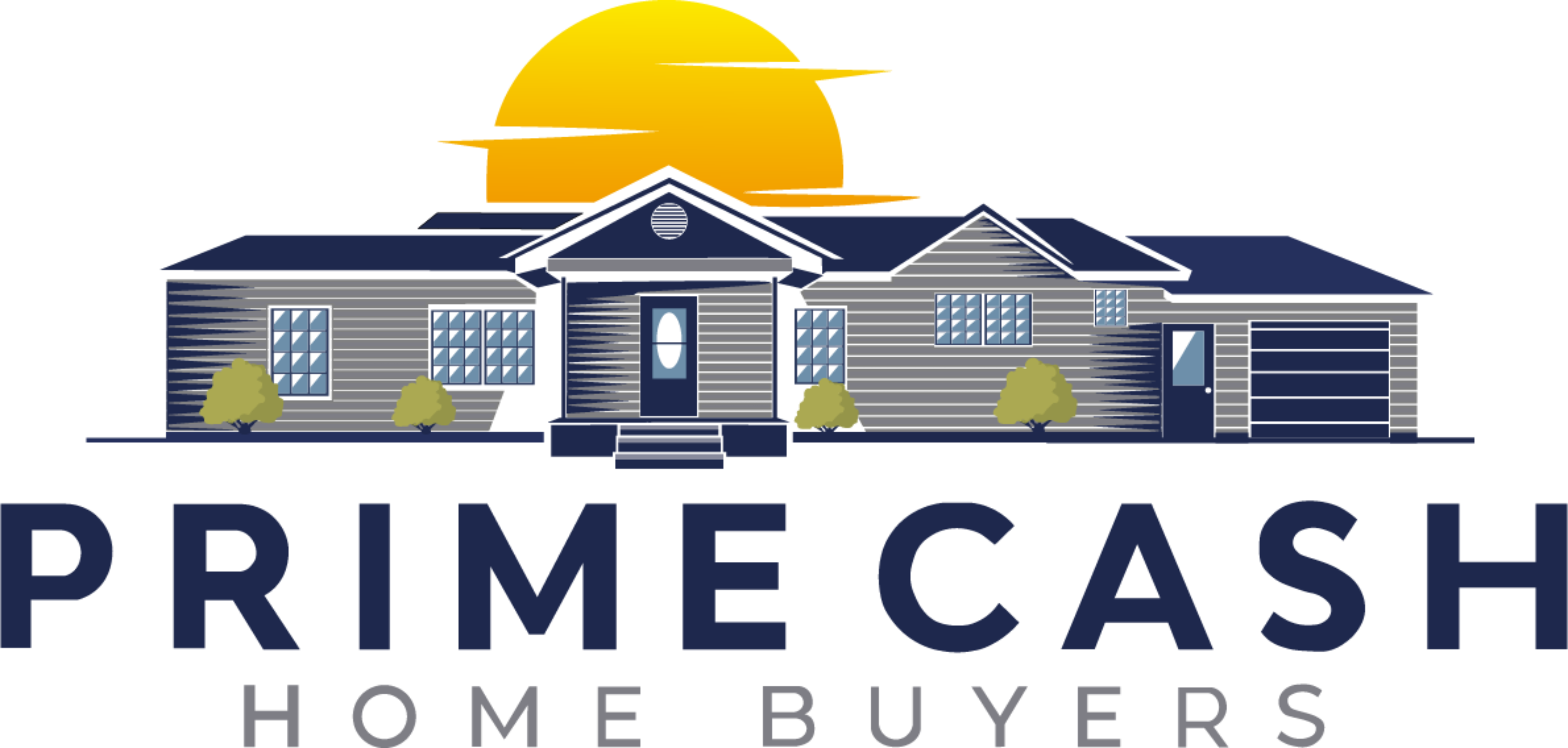
After selling your Augusta, Georgia, home, capital gains tax can be complicated, but understanding it is essential for financial planning. This guide deciphers this tax’s nuances, including homeownership duration and exemptions. By understanding how capital gains tax affects your finances, you can better plan your home sale and maximize your profits. Keep informed to make financial decisions that comply with local tax laws. Let Prime Cash Home Buyers help you with personalized and expert advice.
Brief Overview
In Georgia, after selling a home in Augusta, capital gains tax must be managed to maximize profits. Duration of ownership, exemptions, and sale timing affect this tax. Important IRS exclusions can lower tax liabilities for primary residence sellers, increasing net gain. It’s also important to understand Georgia’s capital gains tax and renovation or selling cost deductions. According to our detailed capital gains tax strategies guide, proactive planning and professional advisory consultation ensure compliance and maximize home sales benefits. For a quicker, stress-free sale experience, consider working with cash home buyers in Augusta and nearby cities.
Key Highlights
- Capital gains tax in Georgia significantly impacts home sellers’ financial outcomes.
- IRS The IRS offers exemptions of $250,000 for singles and $500,000 for married couples with primary residences.
- Understanding your home’s primary residence status is crucial for tax benefits.
- Georgia incorporates capital gains into state taxable income without a separate tax.
- Consulting tax professionals can maximize financial gains and ensure compliance.
Understanding Capital Gains Tax in Georgia
Sellers in Augusta and beyond must understand the Georgia capital gains tax. You can significantly impact your post-sale financial outcome by understanding capital gains and Georgia home sellers. This section discusses capital gains and how they affect Georgia home sellers. To make selling in Georgia easier and more informed, we’ll offer tax advice and insights.
What Are Capital Gains?
When you sell a home for more than its purchase price, you make capital gains. Capital gains in Georgia real estate are taxed. Selling property requires homeowners and investors to understand these gains.

Short-term and long-term capital gains exist. Long-term gains are taxed at lower rates than short-term gains, which are taxed at regular income rates. Depending on income and filing status, federal long-term capital gains taxes range from 0% to 20%.
Residential homeowners may qualify for IRS exclusions that reduce or eliminate profit taxes. You can exclude $250,000 of gain if single or $500,000 if married and filing jointly if the property was your primary residence for at least two of the past five years. To maximize profits and minimize taxes when selling a Georgia home, you must understand capital gains.
The Impact on Georgia Home Sellers
Selling a home in Georgia, including Augusta, requires knowledge of federal and state capital gains tax laws. The Georgia income tax includes sales profits, but there is no capital gains tax. Georgia’s marginal tax rates affect your total gain, making tax planning essential to reduce liabilities and protect earnings.
If homeowners have owned and lived in the home for at least two of the last five years, they may qualify for the IRS capital gains exclusion, up to $250,000 for single filers and $500,000 for married couples. These requirements can significantly increase your post-sale take-home pay.
Though there is no state capital gains tax, sellers should be aware of other taxes and local regulations. Consult a Georgia tax professional to comply with current laws, make informed decisions, and maximize home sales profits.
Primary Residence Exemptions
In Augusta, Georgia, home sellers must understand primary residence exemptions to minimize capital gains tax liabilities. For homeowners looking to maximize their return, these exemptions can significantly reduce taxable capital gains on their property. Let’s define a primary residence and discuss Georgia’s capital gains tax exclusions. Knowing these exemptions helps you plan your finances and gives homeowners opportunities to sell their properties for tax benefits.
Identifying Primary Residence
Primary residences are where you live most of the year and qualify for capital gains tax exclusions. Ownership and residency for at least two of the last five years before selling are required. That status depends on ownership, occupancy, and intent to live there.
A voter registration, driver’s license, or property tax document can prove primary residence. Records verify IRS exclusions and protect you from audits.
Individuals can exclude $250,000 in gains; married couples, $500,000. Georgia homeowners can maximize profits and minimize capital gains taxes by properly documenting their primary residence status.
Exemptions for Capital Gains
Selling your primary residence in Augusta, Georgia, with capital gains tax exemptions can reduce your tax burden. Homeowners who meet ownership and residency requirements can exclude up to $250,000 in gains if single or $500,000 if married and filing jointly.
For two of the last five years before the sale, you must own and live in the home as your main residence. Sales due to job changes or illness may qualify for partial exemptions. Sellers can save more for investments or personal goals by following these rules.
Consult a tax professional and stay current on federal tax updates to ensure compliance and maximize savings. Augusta homeowners can minimize capital gains taxes and net more from home sales by strategically using these exemptions.
Capital Gains Taxes on Georgia Home Sales
To maximize profits and minimize liabilities, Augusta, Georgia, home sellers must understand capital gains taxes. Understanding how these taxes are calculated gives home sellers a financial advantage. Our capital gains tax calculation will consider the sale price and other factors. Working with cash home buyers in Georgia and surrounding cities can help you sell quickly and manage your taxes. Our final section will explain how these elements interact with federal and state laws to help you manage real estate transactions.
Calculating Capital Gains Tax

Net gain is used to calculate capital gains tax. Deduct your home’s purchase price and qualifying improvements or major repairs from the sale price to calculate the taxable amount. These changes raise your property’s basis and limit your tax liability to profit.
Example Calculation:
Purchase price: $220,000
Home improvements: $30,000
Adjusted basis: $220,000 + $30,000 = $250,000
Selling price: $400,000
Selling expenses (agent fees, closing costs): $20,000
Net sale amount: $400,000 – $20,000 = $380,000
Capital gain: $380,000 – $250,000 = $130,000
If this Augusta home was your primary residence for at least two of the last five years and you’re single, you can exclude up to $250,000 of capital gains. Since your gain is $130,000, it falls entirely under the exemption, meaning you owe no capital gains tax.
If you’re married filing jointly, the exemption increases to $500,000, offering even more room for tax-free profit. Always verify calculations and eligibility with a qualified tax professional to ensure compliance and maximize your savings.
Factors Influencing Gains and Taxes
Georgia capital gains tax on home sales depends on several factors. The sale price, market timing, and property ownership duration are important. In a strong market, selling may increase profits and taxable gains, but holding the property longer may lower long-term taxes.
Marital and filing status also matter. Before selling, married couples filing jointly have higher exemption limits than single filers, making strategic ownership planning important. Marriage or divorce can affect exemption eligibility.
Inflation, interest rates, and state tax laws affect your gain. Accounting for capital improvements and selling costs lowers taxable income. Consult a tax professional to ensure compliance and maximize deductions and exemptions for a more profitable sale.
Georgia capital gains taxes are complicated, so consider these key strategies to reduce tax liability:
- Analyze market trends to maximize profits and minimize taxes.
- Holding investments for a year can provide long-term tax benefits.
- Look into joint tax benefits and manage ownership rights.
- As economic conditions and state laws change, adjust strategies.
- Reduce taxable gains by documenting capital improvements.
- Follow tax law updates and consult financial advisors.
- Assess family status changes and plan tax exemptions.
With these strategies, sellers can handle property selling and tax planning.
Capital gains tax mitigation
Selling your Augusta, Georgia, home with lower capital gains taxes can improve your finances. Home sellers can reduce their tax liability through tax planning and recognizing Georgia-specific deductions. These tips will help you maximize your net gains from property sales while complying with Georgia tax laws by explaining tax planning, exclusions, and deductions.
Tax Planning Tips for Home Sellers
Selling a property in Augusta requires careful tax planning to reduce capital gains taxes. Strategic sales timing and exemption knowledge can make a difference. Sales during tax-favored periods or after deductible improvements can offset gains and boost net profit.
If you have lived in the home for two of the last five years and it is your primary residence, you may qualify for IRS exclusions of up to $250,000 for single filers or $500,000 for married couples. 1031 exchanges let investors defer capital gains taxes by reinvesting proceeds in another property.
Maintain detailed records of renovations, repairs, and selling expenses, which raise your home’s cost basis and lower taxable gains. Finally, visit a Georgia tax professional for state and federal tax updates. Planning ahead can reduce tax liabilities and maximize home sales returns.
Potential Georgia-Specific Deductions
Georgia home sales, especially in Augusta, can provide tax deductions that lower your income tax bill. Your taxable income includes home sale profits, even though the state doesn’t tax capital gains. Strategic deductions can reduce gains and boost net proceeds.
Real estate agent commissions, closing costs, and value-added home improvements are deductions. Capital repairs or upgrades that extend your home’s life can lower taxable gains by increasing its cost basis. A Georgia tax advisor can help you apply these deductions correctly and maximize savings.
State and local tax credits that may apply to property sales should also be monitored by homeowners. Even small deductions or incentives can save money. Keep accurate records of property-related expenses and consult a professional to ensure compliance, reduce tax liabilities, and increase profit from selling a home in Georgia.
| Strategy | Description | Key Benefit |
|---|---|---|
| Home Exclusion Rule | Exempt up to $250,000 for singles or $500,000 for married couples from capital gains if used as a primary residence for 2 of the last 5 years. | Significantly reduces taxable income on home sale gains. |
| Tax-Loss Harvesting | Offset capital gains by selling underperforming investments at a loss. | Balances overall capital gains tax liability, lowering tax payments. |
| 1031 Exchange | Defer capital gains taxes by reinvesting proceeds into a similar investment property within a specified time frame. | Postpones tax payments and maintains investment growth potential. |
| Improve Property Basis | Increase the initial investment value of the property by accounting for capital improvements. | Reduces the total taxable gain upon sale. |
This table highlights effective strategies to minimize tax burdens and maximize profit from property sales in Georgia.
Common Georgia Capital Gains Questions
Understanding capital gains tax details can help Georgia homeowners sell. This section addresses common questions about state-specific tax benefits and financial planning. From Georgia’s approach to exclusions, we’ll cover key factors that could affect your property sale. These tips will help you sell your Augusta home as efficiently as possible while complying with tax laws.
Are There State-Specific Tax Benefits?

Georgia homeowners, especially Augusta sellers, should know that there is no capital gains tax. Instead, Georgia taxes your home sale profit as regular income, which may affect your tax bracket. This integration means your total income determines your gain tax.
Georgia has no state-level exemptions, but eligible homeowners can benefit from federal capital gains exclusions of up to $250,000 for single filers and $500,000 for married couples. By raising your property’s cost basis, deductions for improvements, renovations, and selling costs can lower your taxable gain.
Keep detailed records and consult a Georgia tax professional to maximize these opportunities. Their expertise can help you navigate changing tax laws, find deductions, and minimize liabilities while maximizing Augusta home sale profits.
Understanding the capital gains tax in Augusta, Georgia, after selling a home may seem daunting, but it can greatly affect your financial outcome. Sellers can reduce taxes and maximize returns by using exemptions and documentation. Being informed and consulting financial advisors can provide tailored strategic advice as tax laws change. Understanding these details makes the transaction easier for investors and homeowners. Remember, proactive planning maximizes profits when selling your Augusta home. For personalized assistance, reach out to Prime Cash Home Buyers and get more expert capital gains tax strategies in our comprehensive guide today.
Worried about Capital Gains Tax After Selling a House? Prime Cash Home Buyers makes it easy. We buy homes as-is, offer fair cash deals, and handle everything for a fast, stress-free sale. Call (706) 670-6543 for a no-obligation offer today!
FAQs
What is the capital gains tax when selling a home in Georgia?
Profit from selling a rising-value asset is subject to capital gains tax. According to federal law, Georgia taxes these gains as part of your taxable income.
Are there any exemptions from capital gains tax for primary residences?
If you own and live in your primary residence, the IRS allows you to deduct up to $250,000 of your gain from taxation if you’re single and up to $500,000 for married couples filing jointly upon sale.
How does the duration of homeownership affect capital gains tax?
Once you own a home for more than a year, you qualify for lower long-term capital gains tax rates. Main residence exclusion requires meeting the two-out-of-five-year rule.
What capital gains deductions do Georgia homeowners have?
Seller commissions and closing costs can be deducted, and home improvements can be capitalized. Keeping detailed records of these expenses maximizes deductions.
Why should Georgia home sellers consult a tax professional?
Tax professionals can explain federal and state tax laws, exemptions, deductions, and planning opportunities to reduce tax liabilities and comply with regulations.
Helpful Augusta Blog Articles
- What Do I Need To Do To Sell My House In Augusta, Georgia?
- How To Successfully Sell Your Mortgaged Home In Augusta, GA
- Tax Obligations When Selling Your Home In Augusta, GA
- Selling A House With Tenants In Augusta, GA
- Tenant-caused Property Damage In the House in Augusta, GA
- FSBO Paperwork For Selling Your Home In Augusta, GA
- Homeowners Insurance When Selling in Augusta, GA
- Cost Of Home Appraisals And Inspections In Augusta, GA
- Sell Your Augusta, GA, Home With Code Violations
- Costs Of Selling Your House In Augusta, GA
- Navigating House Sales In Augusta, GA
- Capital Gains Tax After Selling a Home in Augusta, Georgia
- Can I sell a house with a quitclaim deed in Augusta, GA?
- Selling Home with Reverse Mortgage in Augusta, GA
- Augusta, GA, Neighborhood Map
- The Best and Worst Neighborhoods in Augusta, GA

